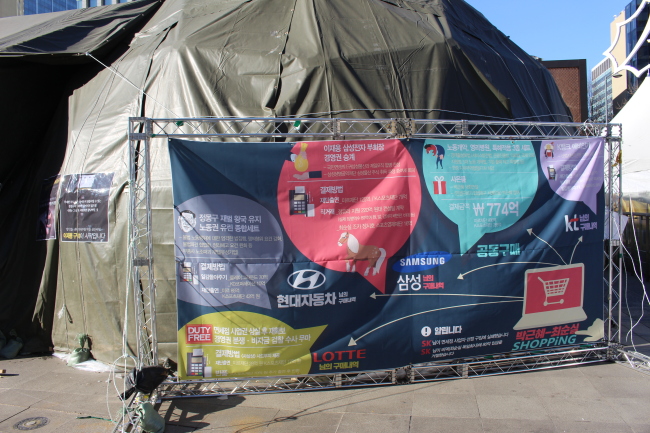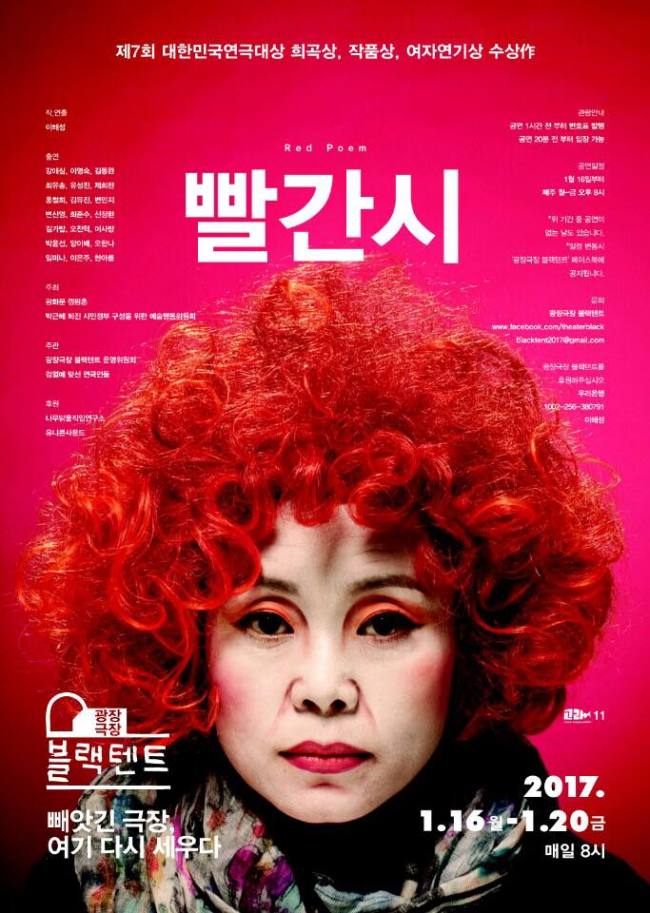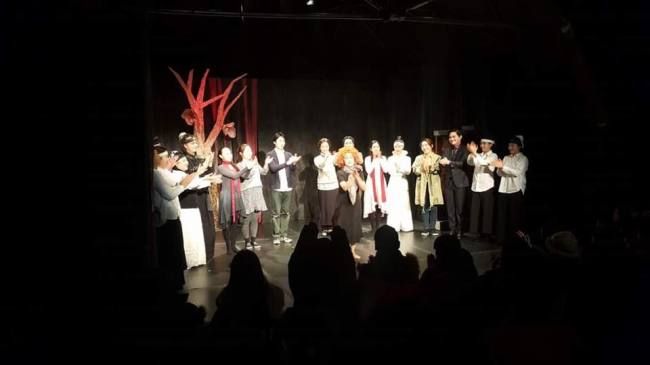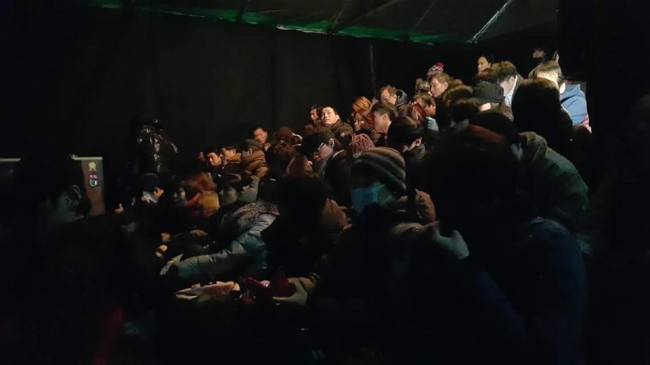Artists on the government’s blacklist of anti-Park Geun-hye cultural figures were placed at a disadvantage in competing for state funding, as they were labelled by the Park administration as left-wing biased.
Now, they have set up a stage of their own in Gwanghwamun Square in the heart of downtown Seoul to hit back at the government by performing precisely what it did not want to see.
Black Tent is a makeshift theater inside a giant tent that hosts plays and performances dealing with social issues.
It was recently revealed that the Park administration kept a blacklist of artists who had expressed anti-government sentiment and those who spoke out on “thorny” issues, such as the 2014 sinking of the Sewol ferry. The president is embroiled in a corruption scandal involving her confidante Choi Soon-sil and is undergoing an impeachment trial.
“Censoring art is something that just cannot be. We will try our best to ensure that the people on the blacklist can work freely,” said theater director Lee Hae-seong who represents artists at the Black Tent.
 |
Black Tent set up by Korean artists / Yoon Min-sik/The Korea Herald |
 |
A poster for “Red Poem” / Gorae |
Performances are scheduled this month and through February, with the artists vowing to continue performing until the fall of the Park administration.
The opening night Monday featured “Red Poem” directed by Lee Hae-seong, which deals with the issue of “comfort women” -- a euphemism for women who were sexually enslaved by the Japanese military during World War II -- and the sex scandal involving late actress Jang Ja-yeon. In a suicide note, Jang alleged that her agency forced her to provide sexual favors to powerful men.
In December 2015, the government inked a landmark deal with Japan on the issue of former comfort women, but the deal was widely criticized as being rushed, insufficient and alienating the victims in the process.
The play “Red Poem” by theater company Gorae centers on a reporter Park Dong-ju from a prominent newspaper who was at the scene when a young starlet -- the theatricalized version of Jang -- is forced into performing sexual acts. His conscience is tormented, as he concealed the starlet’s will -- which included a list of powerful men who received her “services” -- and he is also plagued by the increasingly erratic behavior of his senile grandmother.
Park’s world, however, is turned upside down when the Korean version of a grim reaper mistakenly takes him instead of his grandmother. Tired of his seemingly dead-end life, he refuses to go back and instead asks to just die.
After much debate, the gods of the afterworld decide to show him his life, which is entangled with the deceased actress and that of his grandmother whose past was never explained.
The play moves back and forth between the tragedy of the actress and that of the grandmother, who is later revealed to have been a teenage sex slave.
 |
Actors from the theater company Gorae on Monday perform “Red Poem” at the Black Tent set up at Gwanghwamun Square. Seoul. / Gorae |
 |
Citizens watch “Red Poem” by theater company Gorae at the Black Tent set up at Gwanghwamun Square, Monday. / Gorae |
The play forces the audience to stare directly at the cycle of violence that has yet to disappear with the end of Japanese colonialism.
Overwhelmed by guilt and pain, Park begs to forget everything, but the gods persuade him not to.
“Only by remembering and talking, will it be healed,” they say.
The play attempts to offer a painful but cathartic closure to two tragic memories of Korean society.
“Red Poem” is being staged at 8 p.m. daily until Friday.
It will be followed by “Him and Her Closet” from Jan. 23-24, which will be performed by the bereaved family members of victims of the Sewol ferry disaster.
“We will continue until Park steps down and (Culture Minister) Cho Yun-sun is arrested. If they don’t, we might as well set up our own Culture Ministry right here at the plaza,” said Lee Hae-seong.
By Yoon Min-sik (
minsikyoon@heraldcorp.com)











